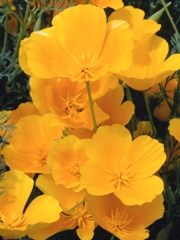 Here’s a new reason to take time to stop and smell the roses. Or at least count them.
Here’s a new reason to take time to stop and smell the roses. Or at least count them.
A consortium of scientists called the USA-National Phenology Network (USA-NPN) is recruiting volunteers from across the country to help track the effects of climate change on ecosystems.
Described by executive director Jake Weltzin as a project “for people interested in participating in climate change science, not just reading about it,” the network will collect data from government, academic, and “citizen” scientists to track the life-cycles of more than 200 plants, including California Poppies and Ponderosa Pines. The project will begin tracking animals next year.
Phenology is the study of the seasonal cycles of plants and animals, such as plants sprouting, flowering and fruiting. Abrupt changes in these patterns, due to climate change or other reasons, can be extremely disruptive to ecosystems.
USA-NPN hopes that the data collected will help scientists and resource managers “predict wildfires and pollen production, detect and control invasive species, monitor droughts, and assess the vulnerability of various plant and animal species to climate change. ”
Weltzin said that he hopes 100,000 citizen scientists will volunteer to help with the project. Detailed information on how to participate is located at www.usanpn.org.
Listen here to an interview with Weltzin about the project on the U.S. Geological Survey’s website. Look for episode #85.
